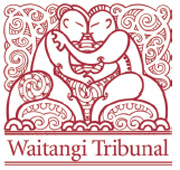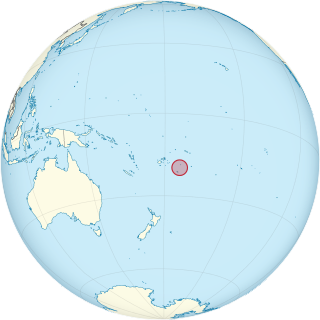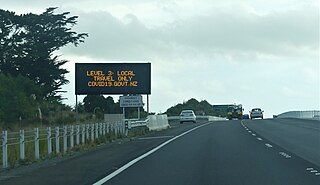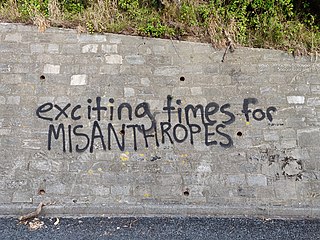Key provisions
The COVID-19 Public Health Response Act provides the legislative framework for the New Zealand Government's response to the COVID-19 pandemic. It applies all alert levels under the Government's COVID-19 Alert Level Framework, replaces the country's state of emergency orders, and empowers police and other "enforcement officers" to apply various lockdown restrictions including closing premises or roads, banning travel and public gatherings, and requiring people to self-isolate at home or with their social bubbles. [5] [6]
The Act empowers the Minister of Health to make "section 11" orders, which are based on sections 70 and 92L of the Health Act 1956. Section 20 of the Act gives enforcement officers including the Director General of Health, medical officers, Police officers, and any person authorised by the Director General to enter any land, building, craft, vehicle, place, or thing without a warrant if they have "reasonable grounds" to believe that a person is failing to comply with any aspect of a section 11 order. Enforcement officers also have the power to shut down businesses or undertakings that are operating in violation of section 11 orders. Sections 26 and 26 also provide criminal penalties including fines and imprisonment terms not exceeding six months for those caught violating "section 11" orders. [5]
The Act also has a two-year sunset clause and will automatically be repealed unless it is continually refreshed by the New Zealand House of Representatives every 90 days. [5] [6] [7] The Bill received royal assent on 13 May. [1] Following lobbying from the Māori Council, the Act was amended to remove any specific references to marae and to require that any warrantless search be reported to the relevant marae committee. [6]
Amendments
On 23 November 2021, the Government passed the COVID-19 Response (Vaccinations) Legislation Act 2021 which introduced several amendments to the COVID-19 Public Health Response Act 2020. [8] [2] Notable amendments include:
- Empowering the Director-General of Health to specify COVID-19 vaccination exemption criteria and COVID-19 vaccine dosages. [2]
- Entrenching stay-at-home orders, permitting entry to specific premises, restricting the type of work carried out by infected workers, and the regulation of COVID-19 vaccine certificates. [2]
- Requiring Persons Conducting a Business or Undertaking (PCBU) to keep vaccination records, and preventing affected persons from working unless vaccinated. [2]
- Empowering authorised enforcement persons to order individuals to produce evidence of compliance with a specified COVID-19 measures. [2]
- Empowers PCBUs to assess that workers are vaccinated and undergo medical examination or testing for COVID-19. The Governor-General at the discretion of the Prime Minister can also prescribe an assessment tool to help PCBUs facilitate this process. [2]
- Allows for the storage and disclosure of personal information on the condition that it is used for ascertaining that a person has been vaccinated, issued with a COVID-19 vaccination certificate, or is complying with the COVID-19 Public Health Response Act, a health order, and the Health Act 1956. [2]
- Recognises the My Vaccine Pass and International Travel Vaccination Certificate as COVID-19 vaccination certificates. [2]
History and responses
On 12 May 2020, Attorney General David Parker introduced the COVID-19 Public Health Response Act to provide the legal framework for the Government's efforts to combat COVID-19 and to replace the country's state of emergency. The bill passed its first two readings on 12 May and passed its third reading on 13 May by a margin of 63 to 57 votes. The COVID-19 Public Health Response Act was supported by the Labour-led coalition government (including the allied New Zealand First and Green parties) but was opposed by the opposition National Party. National Member of Parliament Gerry Brownlee claimed that the bill placed too much power in the hands of the Prime Minister without clarifying what advice she needed to make decisions. The ACT party's sole Member of Parliament David Seymour voted in favour of the bill during its first two readings but opposed it during its third reading because he believed that it did not "balance the rights, freedoms and overall welfare of New Zealanders with the Government's effort to control COVID-19." [6] [7]
The COVID-19 Public Health Response Act was criticised by Chief Human Rights Commissioner Paul Hunt, who described the lack of scrutiny and rushed process as "a great failure of our democratic process". Hunt also criticised the lack of provision within the legislation to ensure that those making decisions and implementing the new law would abide by national and international human rights as well as the Treaty of Waitangi. [6] Opposition parties and civil liberties groups also expressed concerned that the bill empowered Police to enter premises without a warrant. In response to criticism, Parker claimed that the bill limited police search powers in comparison to the Health Act 1956 and the national state of emergency. [7]
Musician and conspiracy theorist Billy Te Kahika's New Zealand Public Party has sought to repeal the COVID-19 Public Health Response Act. [9] [10] In late July 2020, the Public Party entered into an alliance with independent MP Jami-Lee Ross's Advance New Zealand party. [11]
On 18 October 2022, COVID-19 Response Minister Chris Hipkins announced that the Government would scrap several of the Public Health Response Act's provisions including powers to implement lockdowns, managed isolation and quarantine (MIQ), border closures, vaccine passes and mandates. The Government however opted to retain the Act's provisions for seven-day isolation periods, mask use and border entry requirements until Parliament passed newer, general pandemic legislation. [12] [13]
On 26 November 2024, the COVID-19 Public Health Response Act 2020 was repealed by Parliament. [4]

The Waitangi Tribunal is a New Zealand permanent commission of inquiry established under the Treaty of Waitangi Act 1975. It is charged with investigating and making recommendations on claims brought by Māori relating to actions or omissions of the Crown, in the period largely since 1840, that breach the promises made in the Treaty of Waitangi. The Tribunal is not a court of law; therefore, the Tribunal's recommendations and findings are not binding on the Crown. They are sometimes not acted on, for instance in the foreshore and seabed dispute.
The Therapeutic Goods Administration (TGA) is the medicine and therapeutic regulatory agency of the Australian Government. As part of the Department of Health and Aged Care, the TGA regulates the safety, quality, efficacy and advertising in Australia of therapeutic goods. Therapeutic goods include goods that are represented to have a therapeutic effect, are included in a class of goods the sole or principal use of which is a therapeutic use, or are otherwise determined to be a therapeutic good through a legislative instrument under the Therapeutic Goods Act 1989. Goods that are therapeutic goods must be entered on the Australian Register of Therapeutic Goods (ARTG), or otherwise be the subject of an exemption, approval or authority by the TGA under the Therapeutic Goods Act 1989, Therapeutic Goods Regulations 1990 or Therapeutic Goods Regulations 2002 before they can be imported, supplied, exported or manufactured in Australia.

The Sixth Labour Government governed New Zealand from 26 October 2017 to 27 November 2023. It was headed first by Jacinda Ardern and later by Chris Hipkins, as Labour Party leader and prime minister.
The COVID-19 pandemic in New Zealand was part of the pandemic of coronavirus disease 2019 caused by severe acute respiratory syndrome coronavirus 2. The first case of the disease in New Zealand was reported on 28 February 2020. The country recorded over 2,274,370 cases. Over 3,000 people died as a result of the pandemic, with cases recorded in all twenty district health board (DHB) areas. The pandemic first peaked in early April 2020, with 89 new cases recorded per day and 929 active cases. Cases peaked again in October 2021 with 134 new cases reported on 22 October.

The COVID-19 pandemic was confirmed to have reached Tonga on 29 October 2021 with a traveller who tested positive in quarantine. Several more cases were found in January and February 2022 in a minor outbreak during the aftermath of the 2022 Hunga Tonga–Hunga Ha'apai eruption and tsunami as other countries delivered aid. Tonga had followed a "Covid-free" policy.

Protests, demonstrations and strikes occurred around the world against national responses to the COVID-19 pandemic by governmental bodies. Some were driven by the financial hardship resulting from government measures to contain the virus, including restrictions on travel and entertainment, hitting related industries and workers hard. Protests also occurred in opposition to restrictions on people's movements, compulsory wearing of face masks, lockdowns, vaccinations and other measures. Some protests were driven by COVID-19 misinformation, conspiracy theories, far-right and other extremist groups and individuals.

Brooke Olivia van Velden is a New Zealand politician who has served as the deputy leader of ACT New Zealand since June 2020. She has been a member of Parliament (MP) since the 2020 general election, first as a list MP and, since 2023, the MP for Tāmaki. Van Velden currently serves in the National-led government as the 38th minister of internal affairs and 6th minister for workplace relations and safety. She is the second youngest cabinet minister in New Zealand history, being just eight days older than Phil Goff was when he became Minister of Housing after the 1984 election.
There were several COVID-19 protests in New Zealand held during the period of COVID-19 restrictions from 2020 to 2022, where people protested the government's response to the COVID-19 pandemic in New Zealand, in particular the lockdown measures in place in March–May 2020, August 2020, and August–November 2021 and the later vaccine mandates. The protests have been largely condemned by members of parliament, as well as local city and regional councils. Fears were also raised about the protests increasing the spread of the virus.

The New Zealand Government responded to the COVID-19 pandemic in New Zealand in various ways. In early February 2020, the Government imposed travel restrictions on China in response to the global COVID-19 pandemic originating in Wuhan and also repatriated citizens and residents from Wuhan. Following the country's first case, which originated in Iran, the Government imposed travel restrictions on Iran.

The COVID-19 pandemic in New Zealand has had far-reaching consequences on the country that went beyond the spread of the disease itself and efforts to eliminate it, including education, faith communities, Māori, mass gatherings, sports, recreation, and travel. In addition, there were several recorded cases of lockdown violations, leaks, and misinformation about the COVID-19 virus and vaccines.

COVID-19 vaccination in New Zealand began on 20 February 2021, and will continue throughout the pandemic with the goal of vaccinating all willing New Zealanders aged 5 or older. Those aged 5 to 11 require a parent, caregiver or legal guardian accompany them to their appointment and provide consent for them to be vaccinated. As of 1 September, anyone in New Zealand, regardless of their immigration status, is eligible to be vaccinated.
Claire Ann Deeks is a New Zealand anti-vaccine activist who has challenged the government's response to COVID-19. She was an unsuccessful candidate for the Advance NZ party in the 2020 general election, and set up the group Voices for Freedom (VFF), which distributed pamphlets that have been criticised by experts as containing COVID-19 misinformation about vaccines, lockdown and the wearing of masks. As a food blogger, Deeks promoted the paleo diet and "healthy" lunchboxes for children, and developed a petition to stop the rating system for foods used by the NZ and Australian governments. She is a former intellectual property lawyer.

A COVID-19 vaccine card is a record often given to those who have received a COVID-19 vaccine showing information such as the date(s) one has received the shot(s) and the brand of vaccine one has received, sometimes including the lot number. The card also contains information identifying the recipient and the location where the shot was given. Depending on the country, it could serve as an official document verifying one has received vaccination, which could be required by some institutions, such as a school or workplace, when boarding a cruise ship, or when crossing an international border, as proof that one has been vaccinated.
The COVID-19 pandemic in New South Wales, Australia was part of the worldwide pandemic of the coronavirus disease 2019 caused by severe acute respiratory syndrome coronavirus 2. The first confirmed case in New South Wales was identified on 19 January 2020 in Sydney where three travellers returning from Wuhan, Hubei, China, tested positive for the virus.

This article documents the chronology of the response to the COVID-19 pandemic in October 2021, which originated in Wuhan, China in December 2019. Some developments may become known or fully understood only in retrospect. Reporting on this pandemic began in December 2019.
The COVID-19 Protection Framework was a system used by the New Zealand Government during the COVID-19 pandemic in New Zealand. The three-tier traffic light system used vaccination and community transmission rates to determine the level of restrictions needed. It came into effect at 11:59 pm on 2 December 2021, replacing the four-tier alert level system, which used lockdowns. On 12 September 2022, Prime Minister Jacinda Ardern announced that the traffic light system would be dropped at 11:59 pm that night.

This article documents the chronology of the response to the COVID-19 pandemic in January 2022, which originated in Wuhan, China in December 2019. Some developments may become known or fully understood only in retrospect. Reporting on this pandemic began in December 2019.

The COVID-19 Response (Vaccinations) Legislation Act 2021 is an Act of Parliament to provide a legal framework for the New Zealand Government's COVID-19 Protection Framework and vaccination mandates. The bill was introduced under urgency and passed in law on 23 November 2021. While the bill was supported by the Labour Government and their Green coalition partners, it was opposed by the opposition National, ACT, and Māori parties, which criticised the rushed and divisive nature of the legislation and claimed that vulnerable communities would be adversely affected.

The second term of the Sixth Labour Government of New Zealand lasted between 2020 and 2023. It was formed following the Labour Party's landslide victory in the 2020 New Zealand general election. In mid January 2023, Prime Minister Jacinda Ardern resigned and was succeeded by Chris Hipkins. During the 2023 New Zealand general election held on 14 October, Labour lost its majority to the opposition National Party. The Government remained in a caretaker capacity until the new National–led coalition government was sworn in on 27 November 2023.










